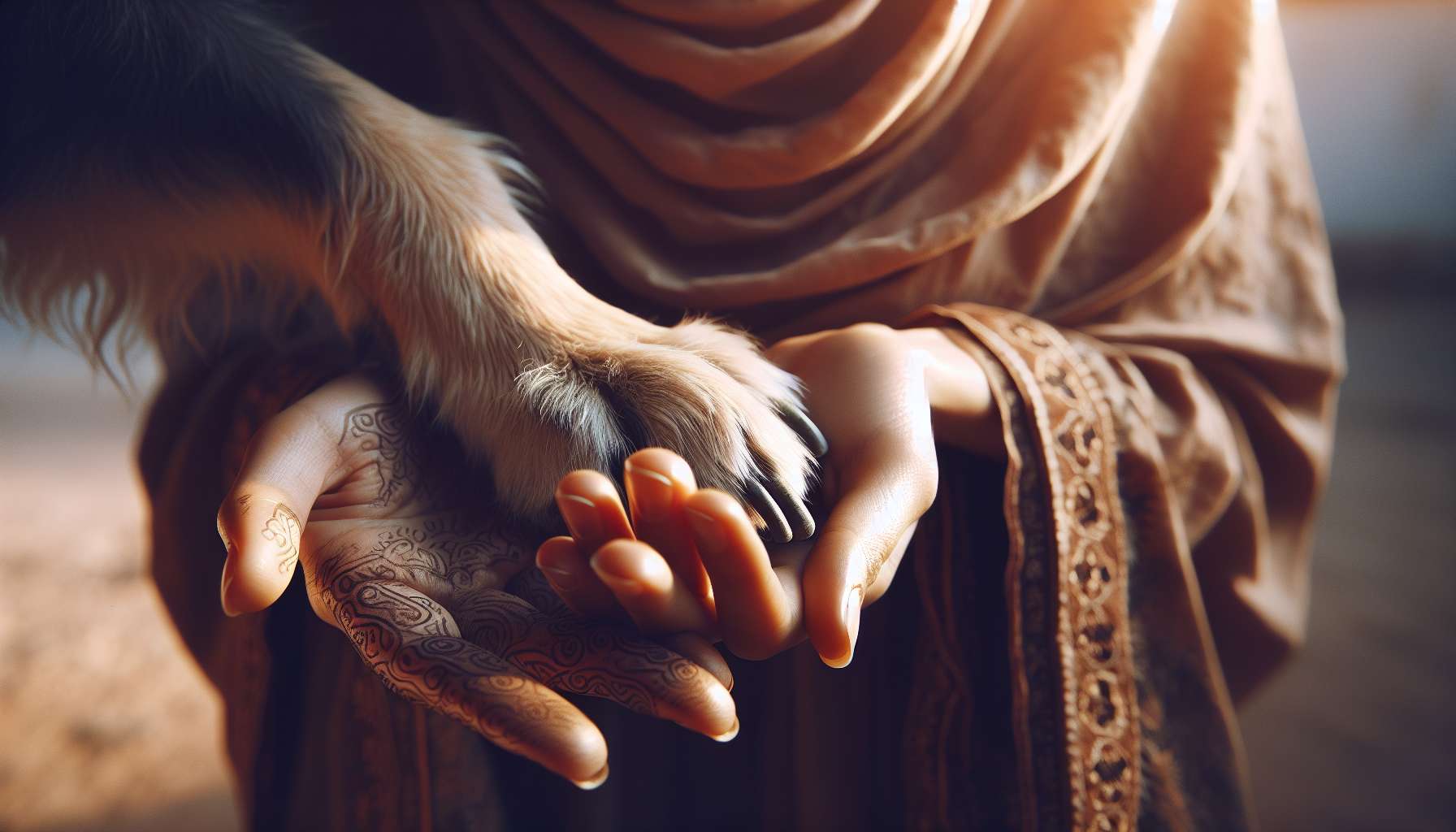The man-dog relationship is unique and fascinating in many ways. It finds its roots in the domestication of the wolf over 15,000 years ago, which gave birth to an extraordinary diversity of canine breeds, each with its own morphological and behavioral characteristics. But beyond differences, all dogs share an innate ability to communicate and cooperate with man, the fruit of a long coevolution.
Dogs have developed remarkable cognitive abilities to decode human communication signals. They can follow our gaze, understand pointing gestures, interpret our facial expressions, and even differentiate our words. A famous study led by biologist Brian Hare has shown that dogs are more successful than chimpanzees, our closest cousins, in following human cues to find hidden food. This sensitivity to human signals would be inscribed in their genes, a result of a selection during domestication.
But man-dog communication is bidirectional. Dogs also have their own repertoire of signals to interact with us. Barking, moaning, growling, but also postures, tail movements, and facial expressions are all ways for a dog to express his feelings and needs. An attentive owner learns to decode these signals to better understand his companion. For example, a dog who looks away and yawns in the presence of a boisterous child expresses his discomfort and seeks to appease the situation.
The man-dog relationship is deeply affective. Dogs are capable of bonding with their owners in an intense and exclusive way. The biological mechanism at work is similar to the mother-child attachment in humans: the secretion of oxytocin, the “happiness hormone”, during positive interactions. This is why the presence of a dog can soothe our stress, comfort in case of emotional distress, and even facilitate social interactions. Dogs are real “social facilitators” who open us to the relationship with others.
This affective dimension is reinforced by the fact that dogs are entirely dependent on us for their vital needs. We are responsible for providing them with food, shelter, care, and attention. This dependence creates a bond of responsibility and commitment that can be very strong. Many owners consider their dog as a full-fledged member of the family or even as a “child” they are responsible for. This humanization of the animal, although it can sometimes be excessive, testifies to the intensity of the bond that unites us with our canine companions.
But the man-dog relationship is not limited to the affective and domestic sphere. Since forever, dogs assist man in a multitude of activities: hunting, herd guarding, protection, rescue, substance detection, assistance to disabled people… The list is long and continues to grow. In each of these activities, it is the close cooperation between man and dog that ensures success. The dog handler must establish a relationship of trust and mutual respect with his canine partner, based on clear and positive communication. The dog’s olfactory abilities, agility, strength, and obedience are all assets that man has been able to leverage.
Finally, the man-dog relationship also has a therapeutic dimension that is increasingly recognized. Assistance dogs offer invaluable help to people with disabilities, providing them daily physical and emotional support. In nursing homes, volunteer dog visits bring joy and comfort to residents, stimulate social interactions and awaken happy memories. Dog-assisted therapy is used with children, autistic individuals or victims of trauma to promote calm, confidence, and openness to relationships.
For the Grief Coach specializing in pet bereavement, understanding the depth and complexity of the man-dog relationship is essential. This allows them to better welcome the intense emotions that the loss of a canine companion can generate: sadness, longing, guilt, anger, sense of injustice… By recognizing the uniqueness of each relationship, the coach can offer empathetic listening and help the grieving person put words to their experience.
Knowledge of the specifics of the man-dog relationship will also allow the coach to help their client make sense of the loss. Recalling shared times of complicity, trials faced together, mutual learnings, is to recognize the unique value of this relationship and to honor the memory of the departed. It is also an opportunity to explore the person’s beliefs about the animal’s place in their life and in society. Mourning can be an occasion to reaffirm their values of respect and responsibility towards animals.
Finally, a positive vision of the man-dog relationship can help the grieving person to contemplate the future with serenity. Some people feel guilty about the idea of adopting a new dog, as if they were betraying the memory of the one who passed away. By remembering that each relationship is unique and that offering love to a new being does not detract from the one we have lost, the coach can encourage their client to open up to a new relationship, if and when they feel ready. Adopting a dog can be a beautiful way to honor the legacy of a departed companion, by passing on the love and values they have taught us.
Key takeaways:
– The man-dog relationship finds its roots in the domestication of the wolf over 15,000 years ago, giving birth to a great diversity of canine breeds.
– Dogs have developed remarkable cognitive abilities to decode human communication signals, a result of a long coevolution.
– Man-dog communication is bidirectional: dogs have their own repertoire of signals (barking, postures, facial expressions) to express their emotions and needs.
– The relationship is deeply affective, based on attachment and the secretion of oxytocin during positive interactions. Dogs can soothe our stress and promote social bonding.
– Dogs are entirely dependent on man for their vital needs, creating a strong bond of responsibility, with owners often considering them as family members.
– Dogs assist man in numerous activities (hunting, guarding, rescue, assistance to disabled people) through close cooperation.
– The man-dog relationship has a therapeutic dimension that is increasingly recognized (emotional support, social stimulation, soothing).
– For the pet bereavement coach, understanding this relationship allows for welcoming intense emotions associated with loss, helping to make sense of it, and contemplating the future serenely.
– Adopting a new dog after bereavement can be a way to honor the legacy of the departed companion by passing on the love and values they taught.
👉 To download docx (Editable) file click here : Click here
👉 To download PDF file click here : Click here
👉 To download MP3 file click here : Click here







